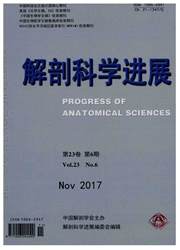

 中文摘要:
中文摘要:
RNA干涉是双链RNA在细胞内介导的同源序列的mRNA转录后表达抑制,导致基因沉默。它是一种比反义技术更为有效的方法,具有更高的特异性。自从其问世以来,在肿瘤研究,遗传性疾病,基因诊断,基因治疗以及药物设计等领域得到快速发展和广泛应用。在神经生物学及神经性疾病的应用研究方面,RNA干涉技术也显示了独特的优势,如神经的发生发育过程研究及神经退行性疾病的治疗等。本文就RNA干涉技术在神经生物学领域的实验及应用研究做一综述。
 英文摘要:
英文摘要:
As a novel molecular biotechnology, RNA interference (RNAi) is emerging as a new strategy to selectively shut off the post-transcriptional expression of mRNA. The mechanism is that the homologous in sequence in cells to the silenced gene is mediated by double-stranded RNA. RNAi has more efficiency than antisense technology and has highly specificity. RNAi developed rapidly and applied extensively in fields of cancer research, genetic disorders, gene diagnosis, gene therapy and drugs designing. In aspect of neurobiology and nerve system disease application research, RNAi also has distinct dominance, such as nerve generation and development research or degenerative disease therapy .This paper has reviewed the experimental or application research of RNAi in the field of neurobiology.
 关于周丽华:
关于周丽华:
 关于彭英:
关于彭英:
 同期刊论文项目
同期刊论文项目
 同项目期刊论文
同项目期刊论文
 Knockdown of the Neuronal Nitric Oxide Synthase Gene Retard the Development of the Cerebellar Granul
Knockdown of the Neuronal Nitric Oxide Synthase Gene Retard the Development of the Cerebellar Granul Limited BDNF contributes to the failure of injury to skin afferents to produce a neuropathic pain co
Limited BDNF contributes to the failure of injury to skin afferents to produce a neuropathic pain co The diversity of nNOS gene expression in avulsion-injured spinal motoneurons among laboratory rodent
The diversity of nNOS gene expression in avulsion-injured spinal motoneurons among laboratory rodent Antisense oligos to neuronal nitric oxide synthase aggravate motoneuron death induced by spinal root
Antisense oligos to neuronal nitric oxide synthase aggravate motoneuron death induced by spinal root 期刊信息
期刊信息
